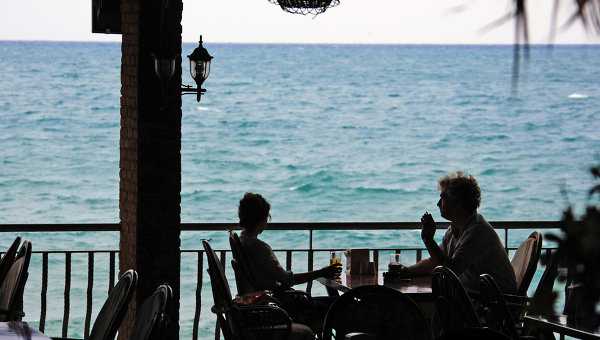Iraq Turkmen Participated in Turkic Forum in United Kingdom
By Mofak Salman Kerkuklu
On the 6th of December, the Turkmens of Iraq have participated in the Turkic forum in United Kingdom that was held at the Azerbaijani House, London, United Kingdom.
The event was commenced with an introduction, networking and refreshments of Turkish food and Turkish cuisine and then the opening speech was started by Dr. Ali Tekin Atalar the Chairman of Azerbaijan House in UK by welcoming the Turkish participants from different countries to the Azerbaijan House and congratulating all the participant for their dedication and enthusiasm that have shown by making the effort to attend this most important meeting.
After that, Dr. Ali Atalar started by given a brief an introduction about the Azerbaijan House in the UK. The Azerbaijani centre was officially opened its doors on the 14th of November with the aim of severing the Azerbaijani community that are living in UK. The Azerbaijani House has been established by the initiative of individual intellectuals, professionals and student living in UK. The organisation and Turkic Forum are strictly non political non profit making organisation and aiming to serve as a community centre, promoting culture activities and friendship between Azerbaijanis and host community.
Azerbaijan Hose aims to become a registered charity at the earliest time possible. Dr. Ali Atalar also kindly stated looking forward to the support of Azerbaijani members and friends towards achieving this goal. Moreover, he revealed that Azeri people feel privileged by being able to tackle the initiative and establish this centre which can be considered as a first permanent home that has been established by a Turkic community in the UK.
He sincerely hoped that this will motivate Azeri’s friends and brothers from the Turkic communities to establish similar centres. If more cultural centres are established by the Turkic community it would lead without doubt to a stronger community link and as a result of this a better service could be provided to our community. In addition to, in recent years huge numbers of Turkic speaking people getting together in London have been organizing cultural events and looking for opportunities to meet and interact with each other and members to enhance the Turkic cultural from different groups.
Furthermore he stated that he had many wonderful groups of people, Turkmens from Kerkuk, Tatars from Kazan, Kyrgyzstan, Turkmen from Turkmenistan, Uzbek, Bulgarian Turks, Kazakhs, Uigurs and many more. All groups are very enthusiastic and anxious to meet regularly, support each other and express their culture. Finally he has expressed his gratitude and thanks to Mr Şener Sağlam, the President of the Federation of Turkish Associations UK. Who is one of the most active members in organizing this event in London, being one of the most diverse and multicultural cities in the world which is home to a huge variety of ethnic communities. Within this hustle and bustle these communities attempt to represent their culture and traditions and act as a platform to lobby for their respective countries of origin while trying to overcome many difficulties and problems this great city brings.
Turkish Cypriot and Azerbaijani communities have identified needs amongst the various Turkic communities for raising cultural awareness and cultivating friendship and solidarity between different Turkic groups living in Britain. Our aim is to build a strong community in the UK by working on specific projects such as creating media organisations, opening cultural centres and libraries, organising various events, meetings and forums so that common cultural traditions and languages can be shared and celebrated.
It is a fact that a strong and organised community can contribute far more to society in Britain and as a result gain more support from local authorities and government. It would therefore make sense to unite our strength and abilities, to share our experiences and knowledge, to work together on various opportunities and thus obtain more successful results.
When we take into account that there are many other Turkic communities like Kazakhs, Uzbeks, Turkmens from Turkmeneli, Turkmen from Turkmenistan, Kyrgyz but a few, we can identify a huge potential. If we can succeed in bringing together all these related groups into one big and powerful Turkic family then whenever necessary we can move and act together as one and be far more effective in achieving our aims within the UK.
It is for this reason that we have come together to organize the “Cultural Forum of Turkic Communities in Britain” as the first step. We wish to meet and share ideas so as to find ways to direct our activities and that will lead us to become one of the most influential communities in Britain. Moreover, Mr Levent Hassan highly contributed in the translation into English language and the discussion that was held during the event in order to facilitate the understanding the meaning of the discussion to participatents who did not speak the Turkish language.
Moreover, Mr Altan Ataturk, the representative of the Republic of South Azerbaijan gave an introduction Azeri population and he had revealed the suffering and oppression of the Azeri on the hand of the Iranian government and also explained the culture and language similarity between the Azeri population in the Republic of South Azerbaijan and other Turkic Estates.
The meeting also has covered the discussion of the election of management committee, representative’s committees, Auit committee and Nevruz celebration committee. The Turkic Forum event was extremely fruitful and beneficial for all the participants and considered as a stepping stone for bring all Turkic spoken people together and working as team under one umbrella. The goal and the objective of the Turkic forum can be fully utilized for lobbying for the cultural and political right for Turkic people whom are residents in the United Kingdom.
The established Turkic forum would greatly enhance the integration of the Turkish into the British society especially by contributing with a rich Turkish culture from various Turkic countries.
Mofak Salman Kerkuklu
ireland






